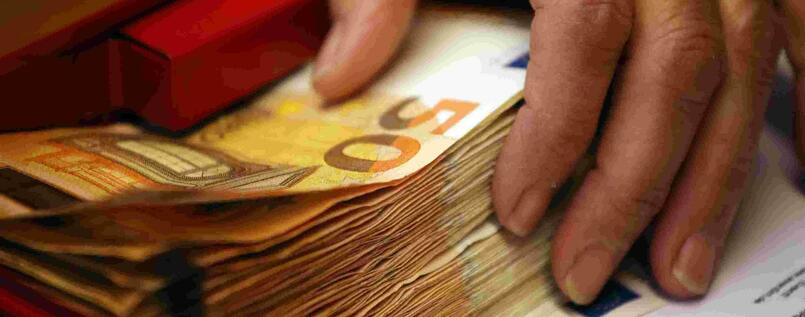The Bundesbank expects inflation to be above the average of recent years. Economists warn against panic. The FDP recommends vigilance.
Inflation has been back for months, albeit moderately. But now the Bundesbank expects that it could increase by up to four percent by the end of the year. This forecast can be found in the new monthly report of the German Central Bank, which is jointly responsible for monitoring price developments within the framework of the European Central Bank (ECB). The inflation rate should rise to this level in the course of the year compared to the same period last year.
The Bundesbank experts do not expect a longer phase with increases at this level. But they also speak in the report of a “certain upside risk to the price outlook”, which comes from more expensive raw materials – crude oil has already become significantly more expensive -, foodstuffs and intermediate products.
Prices are currently rising by around two percent compared to the previous year – the current forecasts for the year as a whole are also at this level. A two was last in front of the decimal point in 2012, while temporary inflation of four percent last occurred in the 1990s.
The fact that inflation can now be expected to be above average compared to the past ten years has to do with the pandemic as well as price increases outside Germany. Sebastian Dullien, Scientific Director of the Institute for Macroeconomics and Business Cycle Research, told Tagesspiegel about the reasons: “On the one hand, VAT was reduced in the second half of 2020.
Now it is fully raised again. From July this will temporarily increase inflation. There is a similar effect with oil prices, which were very low last year. ”
These factors expired at the end of 2021, says Dullien. “In January 2022, a significant decline in inflation can be expected. In the medium and long term, inflation in Germany cannot be expected to remain above two percent. ”
What effect do economic stimulus programs have?
The Bundesbank also expects a “normalization” again in the coming year. However, that also depends on how the next federal government and other European governments react to the collapse in growth in the pandemic. The new US government under Joe Biden has launched a massive economic stimulus program that is already having an impact on prices in the US and worldwide – inflation in the US is already 4.2 percent.
In view of this, the central banks cannot be expected to quickly raise interest rates. The American Fed has signaled that it will hold back for the time being. ECB director Isabel Schnabel said in the middle of the week that “financing conditions will continue to be kept favorable in order to support the economy”. The ECB’s inflation target is around two percent.
“Focus on monetary stability”
FDP parliamentary group vice Christian Dürr told Tagesspiegel that the Bundesbank’s four percent expectation may only be an interim result. “But it should nonetheless be an occasion for the ECB to concentrate more on monetary stability and not primarily pursue other political goals. The further development must be closely monitored in this regard. ”
Jan Schnellenbach, economist at the University of Cottbus, said that “you don’t have to get too nervous for now”. The Bundesbank’s inflation forecast is “no reason to panic, but to be careful”. The ECB should get ready to pursue a more restrictive policy if this continues in 2022. Since there is currently no longer any reason for a very expansive fiscal policy, the government should also consider not making full use of the debt leeway that is still planned for 2021 and 2022.
“Targeted help remains important”
According to the Bundesbank’s assessment, the German government deficit could “move to a magnitude of six percent of GDP” after a good four percent in 2020. “As long as the pandemic-related restrictions persist, targeted fiscal aid will remain important,” said the monthly report.
Because of the pandemic, the EU states suspended the rules of the Stability and Growth Pact for the first time, according to which the budget deficit must not exceed three percent and the total debt must not exceed 60 percent of the gross domestic product.

